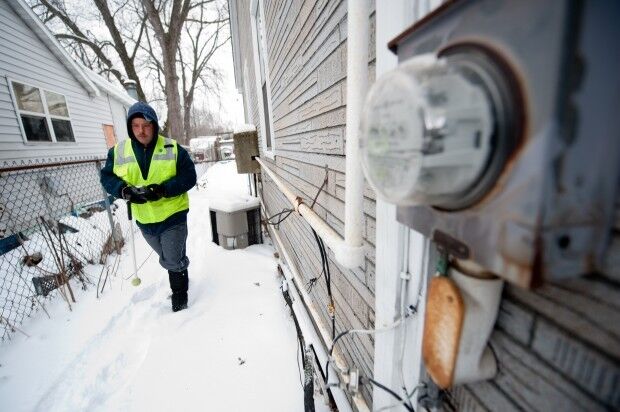Bipartisan Natural Gas Innovation Act will help Minnesotans gain a deeper understanding of the role of natural gas and dual-fuel utilities in the decarbonization of the state’s economy

The Natural Gas Innovation Act (NGIA), a bipartisan component of the Omnibus commerce, climate, and energy policy and finance bill at the Minnesota legislature, has passed during the 2021 first special session and was signed into law by Governor Walz on June 26, 2021.
To achieve a carbon-neutral economy we need to move beyond fossil gas for home heating, industrial processes, and other uses — NGIA will help Minnesota take an important step toward reducing climate change and pollution-causing emissions by creating a pathway for gas and dual-fuel utilities to explore opportunities to shift from fossil fuels onto wind, solar, and other zero-carbon energy sources and decarbonize across their service territories.
“NGIA is an important policy that creates regulatory pathways to align natural gas utility investments and programs with state greenhouse gas emissions reduction goals all while piloting innovative measures and technologies to reduce carbon emissions in our buildings,” said Margaret Cherne-Hendrick, lead director, energy transition at Fresh Energy. “We are proud to have played a guiding role in this innovative and future-focused bill.”
Fresh Energy has been the key stakeholder at the table with CenterPoint Energy for nearly two years working to achieve the best version possible of NGIA that benefits all Minnesotans and utility customers. Other important collaborators include Center for Energy and Environment, LIUNA and the Minnesota Department of Commerce.
NGIA allows utilities to propose “innovation plans” at the Public Utilities Commission (PUC) to advance a diverse range of measures and technologies that will contribute to decarbonization — like the deployment of strategic electrification including cold climate air-source heat pumps, carbon-free ground-source district energy systems, and energy efficiency measures that go beyond the Conservation Improvement Program (CIP). When filing an innovation plan, a utility is required to also submit a “utility system report and forecasts,” detailing infrastructure characteristics, projected capital and fuel investments, carbon emissions, and incentive programs with respect to fossil gas. This data will equip the Commission to evaluate a utility’s innovation plan in the context of its other planned investments and activities in fossil gas. Ultimately, this will ensure that ratepayer dollars are invested only in innovative solutions that achieve substantial decarbonization relative to the utility’s full business model.
Most significantly, the bill requires the PUC to open a “Future of Gas” docket by August 1, 2021, to evaluate changes to natural gas utility regulatory and policy structures needed to meet or exceed the state’s greenhouse gas emissions reduction goals. While Minnesota is the first state in the Midwest to implement such a docket, we join four other states including Colorado, Massachusetts, New York, and California, with similar proceedings.
“We see a “Future of Gas” docket as integral to increasing public transparency into gas utility investments and programs as well as reimagining the regulatory framework that governs gas utilities in a deeply decarbonized economy,” said Cherne-Hendrick. “Beyond that, a Future of Gas docket provides an avenue toward requiring robust integrated resource and distribution planning reporting, similar to what the PUC already requires for electric utilities.”
While the bill also advances fuels like renewable natural gas, Fresh Energy has worked hard to make sure the bill adopts a fuel and technology neutral approach that instead champions energy and carbon savings. For the first time, the bill also establishes a goal of reducing the total amount of fossil gas delivered to customers in Minnesota.
Thanks to the tireless effort and proactive collaboration of bill authors Representative Zack Stephenson (DFL-Coon Rapids) and Senator Bill Weber (GOP-Luverne) as well as support of Committee Chairs Senator Dave Senjem (GOP-Rochester) and Representative Jamie Long (DFL-Minneapolis), Minnesota is better equipped to plan for the move beyond fossil gas for home heating, industrial processes, and more.
At the time this bipartisan bill was signed into law on June 26, 2021, work was already underway at Fresh Energy to form and mobilize a diverse coalition of partners to engage in the Future of Gas docket. Fresh Energy and our partners are excited to maximize the major opportunities for decarbonization presented by the docket and drive equitable, transformational change in Minnesota.

